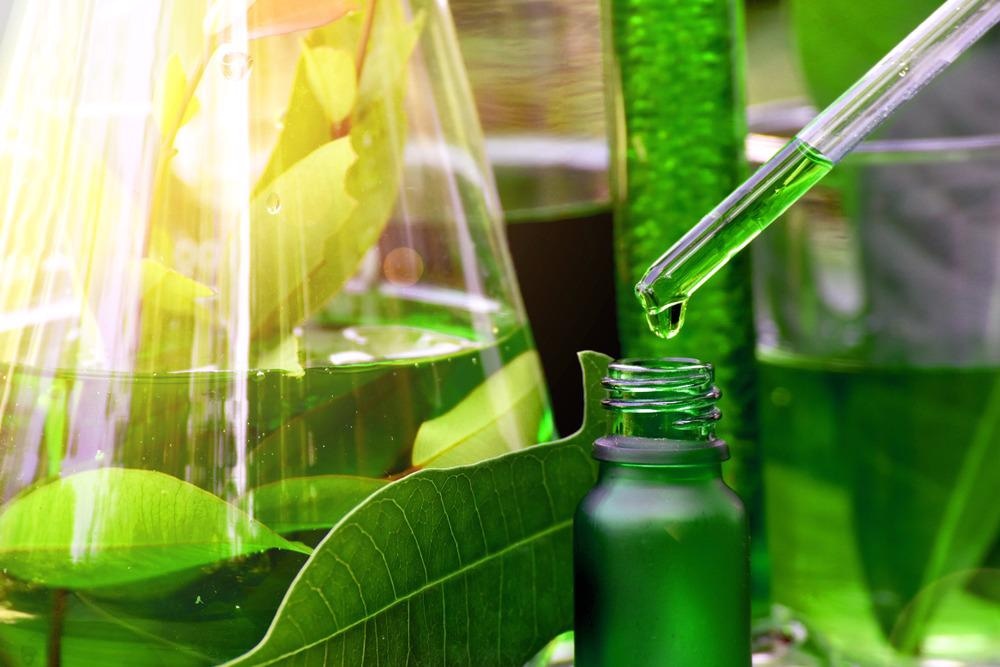In a recent article published in the journal Degradation of NPJ materials, researchers investigated the use of green corrosion inhibitors based on plant extracts to mitigate corrosion of carbon steel. The review also discussed their effectiveness in preventing corrosion caused by H2SO4HCl and CO2.
To study: A Review of Plant Extracts as Green Corrosion Inhibitors for CO2 carbon steel corrosion. Image Credit: ARTIFICIAL PHOTOGRAPHER / Shutterstock.com
Fund
Carbon steel is widely used in the oil and gas industry, and it is an ideal material for pipeline construction due to its mechanical characteristics and low cost. Replacing carbon steel with corrosion-resistant alloys in large oil and gas pipelines is generally not viable due to significantly higher costs.
Carbon steel, on the other hand, is extremely corrosive. One of the most common factors affecting corrosion in oil and gas production is the presence of CO2H2S and organic acids (acetic acid, propionic acid and formic acid), which can produce localized or pitting corrosion.
For carbon steel, the use of corrosion inhibitors is a cost effective corrosion prevention technique. Ecological, biodegradable and inexpensive inhibitor compositions are increasingly being developed and used. Numerous studies have examined herbal extracts using a variety of electrochemical methodologies and characterization approaches.
Plant extracts appear to be promising alternatives to commercially synthesized inhibitor formulations; however, they still need to be optimized. The majority of research on herbal extracts has not fully analyzed the effects of additional synergistic combinations in industrial inhibitor formulations. Therefore, further research on plant extracts as corrosion inhibitors is of great interest.
About the study
In the present study, researchers examined so-called green corrosion inhibitors derived from plant extracts and their CO mitigation potential2 corrosion of carbon steel.
The researchers discussed the CO2 corrosion, corrosion inhibitors, the use of plant extracts as green corrosion inhibitors, and their assessment according to environmental regulations. They also explored various analytical techniques to assess the performance of green corrosion inhibitors based on weight loss techniques and electrochemical measurements,
More from AZoM: Using AFM to Predict Electrochemical Impedance Spectra
The anticorrosion properties of plant extracts have also been studied using simple electrochemical techniques under atmospheric conditions. The researchers briefly described the methodologies for preparing green corrosion inhibitors based on the plant extraction procedure. The review also discussed the ability of these plant extract-based green corrosion inhibitors to prevent strong acid corrosion by HCl and H2SO4and weak acid corrosion by CO2.
Comments
In this review, the researchers observed that corrosion engineers generally need less than 0.1 mm y-1 inhibition rate. An uncontrolled corrosion rate of 24.01 mm y-1 has been observed in the case of the sulfated fatty acid diethanolamine derived from corn oil (SFA). Corrosion rates of mild steel in blank and 1.0 M hydrochloric acid solutions at temperatures of 20-40°C ranged from 2.754 mm y-1 at 42.052 mm y-1.
Additionally, it was observed that researchers who worked with maple leaf extract reported a decrease in corrosion rate at higher temperature for the same metal specimen, A1010 LCS. It was also found that large amounts of inhibitors based on plant extracts were required to achieve levels of protection equivalent to those of conventional inhibitors.
Performing phytochemical screening and running molecular dynamics and quantum chemistry simulations have proven to be effective techniques for determining the most active ingredient of many existing phytochemicals in a plant extract. It has also been observed that most commercial formulations of inhibitors consist of a variety of chemical substances.
In some situations, corrosion rates in blank solutions of identical corrosivity have been observed to vary over a very wide range. Several studies have reported that oil and gas are generated at high pressures and temperatures with corrosive gases like CO2. As a result, more rigorous laboratory testing at high temperature, high pressure, and shear stress was required for oil and gas applications. Additionally, in many reports, only water-based electrolytes have been tested for plant extract-based inhibitors.
conclusion
In conclusion, this review elucidates the potential and applications of environmentally benign green inhibitors based on plant extracts to remove corrosion from carbon steel. The review also sheds light on the future usefulness of these plant extract-based inhibitors in condensate-water or oil-water mixtures, as until now researchers have only evaluated them in plant-based electrolytes. ‘water.
This could be achieved by introducing impurities such as sludge or sand to assess the ability of these materials to adsorb onto the active inhibitor components. This method is frequently used in the evaluation of commercial corrosion inhibitors.
Overall, this review emphasizes the importance of adequate green inhibitors given the widespread utility of mild steel and the associated economic loss due to corrosion. The authors believe that creating an effective, commercial green inhibitor derived from plant extracts for use in oil and gas fields is a practical research topic with many opportunities for innovation in inhibitor formulations. .
Source
Fazal, BR, Becker, T., Kinsella, B. et al. A Review of Plant Extracts as Green Corrosion Inhibitors for CO2 corrosion of carbon steel. npj Mater Degrad 6, 5 (2022). https://www.nature.com/articles/s41529-021-00201-5

